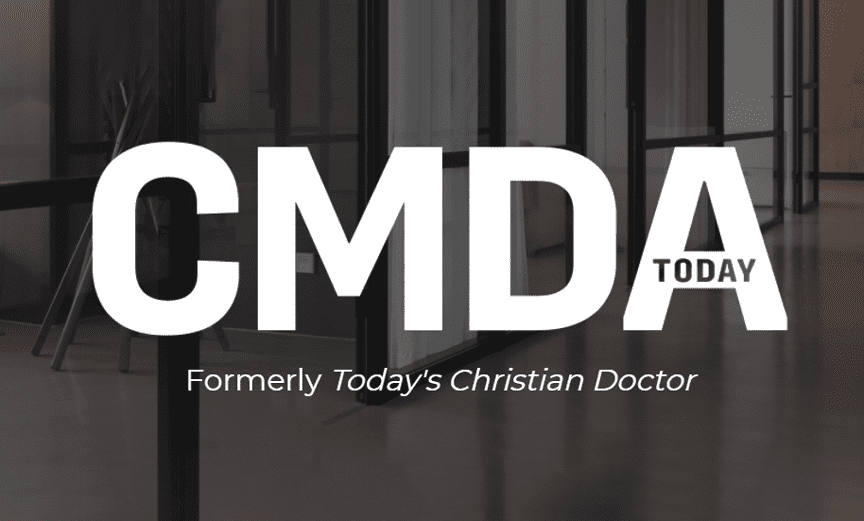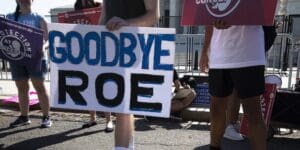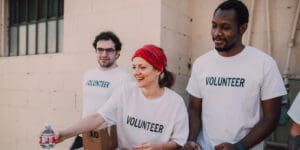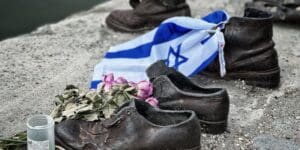
Racism in Healthcare: No One is Immune
“Create in me a clean heart, O God, and renew a right spirit within me.” —Psalm 51:10, ESV It must start with us. Many things have been laid bare this year. In late 2019, a novel Coronavirus referred to as SARS-CoV-2 originating in Wuhan, Hubei, China spread to the United States becoming a global pandemic. By mid-July of this year, there were close to 13 million confirmed COVID-19 cases worldwide, with around six million active cases affecting more than 200 countries. In the United States, there have been more than three million COVID-19 cases (with more than one million recovered) and more than 500,000 deaths. We would soon learn that African Americans—who make up 13 percent of the U.S. population—disproportionately comprise U.S. COVID-19 fatalities, with many having underlying health conditions such as diabetes, hypertension and asthma. Income and wealth inequalities also tend to create greater disparities within communities of color, making access to adequate healthcare and healthy living an elusive and unaffordable necessity.
“Create in me a clean heart, O God, and renew a right spirit within me.” — Psalm 51:10, ESV
It must start with us.
Many things have been laid bare this year. In late 2019, a novel Coronavirus referred to as SARS-CoV-2 originating in Wuhan, Hubei, China spread to the United States becoming a global pandemic. By mid-July of this year, there were close to 13 million confirmed COVID-19 cases worldwide, with around six million active cases affecting more than 200 countries. In the United States, there have been more than three million COVID-19 cases (with more than one million recovered) and more than 500,000 deaths. We would soon learn that African Americans—who make up 13 percent of the U.S. population—disproportionately comprise U.S. COVID-19 fatalities, with many having underlying health conditions such as diabetes, hypertension and asthma. Income and wealth inequalities also tend to create greater disparities within communities of color, making access to adequate healthcare and healthy living an elusive and unaffordable necessity.
While grappling with these unacceptable health disparities, our nation faced something even more horrific but not so new.
Ahmaud Arbery. Breonna Taylor. George Floyd. Three African Americans killed unjustifiably between February and May sparked protests around our nation and world against racism and police violence against Blacks. In particular was the murder of George Floyd at the hands of a Minneapolis police officer kneeling on his neck with his hands tucked in his pockets for eight long minutes and forty-six seconds as Mr. Floyd laid on the pavement underneath the weight of the officer’s knee saying, “I can’t breathe.” Captured on video for the entire world to see, within that horrific eight minutes and 46 seconds, as Mr. Floyd cried out for his mother who had passed two years before, we watched a man die. As many times as the video has been replayed, that image is forever burned in our minds and our consciences.
Although we did not know George Floyd personally, or all he had or had not done leading up to that moment, none of it justified what we witnessed. What we witnessed was absolutely demonic, a disregard for life, a bankrupt moral center and a lack of civility. What transpired in Minneapolis, throughout the country and around the world as Blacks, whites, Latinos and other ethnicities rose to their feet and took to the streets in sheer outrage through protests and marches. There seemed to be great unity. The incident also brought many of us collectively and individually to our knees in prayer. It caused us great grief and lament knowing a man’s life was taken. But something else more important was being laid bare in this time: our hearts.
Since facilitating the CMDA webinar, “Created in His Image: Reversing Racism’s Effects on Health and Healthcare” in June (which was providentially planned prior to Mr. Floyd’s death), we’ve engaged in thoughtful, authentic and insightful conversations on the subject of racism and bias with many of our white brothers and sisters. Introspection and questions in a search to understand…from humble dispositions seeking to listen, learn and squirm by what may be revealed through perceptions and ignorance. What we learned is that no one is immune. Whether biases, implicit or explicit, whether blindspots because of our limited view lived out through our own lens of experience, we can all catch this “virus” that skews how we view another created in God’s image. Ultimately, the “virus” is sin—and that could not be more clear, could not be more black and white.
Our Way Forward and the Antidote
Living in a world that is perishing, ungodly, wicked and operates counter to God’s kingdom principles could make you forget who you are. Even amid darkness, as believers, as those who have been made a new creation in Christ (2 Corinthians 5:17), we also take on Christ’s nature. We seek to no longer conform to the pattern of this world but to be transformed by the renewing of our minds (Romans 12:2). As Christians, we are called to love. We love because God first loved us (1 John 4:19-21). This is not a suggestion but a command.
As members of the Christian Medical & Dental Associations, we are intentionally addressing the sin of racism. This is a time of weeping and lament, a time of introspection and repentance, as we ask Jesus to transform hearts and unify the church. We know the gospel is greater than any division. As we weep together, may we also walk together. Let us not be infected by the world but rather affected by and for the Lord.
In reading Ecclesiastes 3:1-3, verses 2 and 3 tells us there is a “time to plant and a time to uproot…A time to heal; A time to tear down and a time to build up” (NASB). As a call to action, we invite you to pray and consider how the Holy Spirit would lead you to tear down and remove those things unsuitable in our society—that which produce and perpetuate decay. We invite you to pray and consider the godliness you are being led to plant and the godlessness you are being led to uproot in the environments and territories you’ve been placed. We invite you to pray and replace what was torn down with more suitable and fruitful structures.
Satan’s devices for causing division and strife in the world and even within the body of Christ are being exposed. But we must not be idle or passive. And we must be of one accord in order to foil Satan’s plans. As ambassadors of Christ with the role of advancing God’s kingdom in the earth, we are to be change agents, catalysts who clear out things in a territory that don’t need to be there by retaking that territory for God’s kingdom. But it doesn’t end there—once we tear down, clear out and build, we must transfer this knowledge to others so they know how to hold and maintain this reclaimed and restored territory.
Yes, the issues are real, and so is the solution. Not a movement, not an initiative, not a hashtag can bring about the justice and healing that only the gospel can. Our way forward and the antidote is the gospel and transformed hearts.
Recognizing the Danger
I (Dr. Hodge) have always enjoyed watching wildlife. Something about the beautiful background of nature contrasted with the constant struggle for life and death has always fascinated me. One of the creatures that keeps me glued to the screen are snakes and, in particular, the Vipers. King Cobra, Black Mamba (no, not Kobe Bryant RIP), Rattlesnakes, Gaboon vipers, etc. They never fail to fascinate. Watching them hunt and stalk their prey using heat sensors (as snakes are nearly blind) is something of an amazing feat. In an instant we watch the prey fall victim to a quick strike that has to be slowed down many frames per second for us to fully appreciate its awesome power. The thing I have always found most peculiar is that after envenomating its meal, vipers simply wait, and wait, and wait. There is no chase, no real external struggle between the serpent and its prey. At that point, the struggle is all internal. The humoral and nervous system are short circuited by the foreign venom that disrupts proper homeostatic flow.
In our society, however, the venom of racism is much more potent. It not only has physically deleterious effects (like the deaths of Ahmaud Arbery, Breonna Taylor and George Floyd), but it also gets into the mind and actually convinces us it’s simply not there. Somehow we have come to believe that we determine whether or not we have been infected or affected by racism. This is a dangerous issue surrounding racism today, and it is also the reason we are having such a difficult time in this country moving forward to a legitimate peace. We must realize that no one is immune to the dangers of racism.
As a family physician, some of the most difficult patients to treat are my newly diagnosed diabetics. The difficulty is not found in developing a strategy but in terms of patient compliance. I usually spend most of the visit convincing them that they are indeed seriously sick and encouraging them not to rely on their physical senses as a measure of wellness but to defer to my physical exam and lab indices. This is no small feat, as we are wired naturally to trust ourselves and believe the signals our bodies are sending us, while at the same time, we have a special knack for rationalizing any irregularities that may manifest itself. For example, I am always thirsty not because glucose is leaching water right out of my system but rather I have been doing too much. That pain in my legs is not diabetic neuropathy but simply my de-conditioned state that can be cured with a few workouts.
There is a sort of built-in arrogance that must be subdued and the disease state seen in its proper context. Part of our jobs as healthcare professionals is to do just that. We try to establish a proper frame of reference bringing light to an otherwise murky situation in which diseases can hide and thrive. A proud heart cannot see racism. In fact, it wills itself not to see it and largely accomplishes this feat by aligning itself with people and friends who all look and think along the same lines. We all know individuals like this in our practice. They are those people who are seemingly unable to avoid the gauntlet of countless other comorbidities just waiting to partner with our friend’s sweet disposition. On the other hand, if this person can learn to submit to someone who thinks differently than themselves and has a perspective that can be challenging initially, then there is hope of health and wellness in the future. It is the humble and honest patient who gets an accurate assessment of their health as well as a partner in developing a plan for wellness. Proverbs 11:14 says, “Where no counsel is, the people fall: but in the multitude of counsellors there is safety” (KJV).
Despising the Shame
A less often talked about issue that keeps the venom of racism potent and paralyzing is the shame it brings to its victims. In our attempts to keep racism in check and to defang it, we have mandated that its sufferers (all of us) wear a scarlet “R.” It was thought this “R” would bring about a sort of reverential fear and warning to stay away from its effects; however, all it did was drive us underground to silently suffer as the poison had its way in our lives and society as a whole. Romans 3:23 says, “For all have sinned and fall short of the glory of God” (ESV). This Scripture is the key to understanding how to properly position one’s self toward racism. There simply is no chief sin. There are sins that have different levels of natural consequences, but from a righteousness standpoint, none of them bring you closer to or further away from the Giver of Life. Most of the time when I speak to people about racism, I find that I need to spend time deconstructing the platform on which they have put racism. The aim is to bring racism closer to earth where overeating, cursing and laziness live. Once the dehumanizing component of the disease is removed, then dealing with it becomes an actuality. Confessing to having issues with racism should not have a worse connotation than confessing to having issues with sin in general, so long as these are confessions of a repentant and sincere heart. Healing the Wound
Recognizing the venom of racism, submitting to godly, reconciliatory leadership and removing any preformed ideas about the stigma of racism puts us in a position to move from a negative peace toward a positive peace. The term “negative peace” first coined by Martin Luther King, Jr. as he wrote from a jail in Birmingham, Alabama during the civil rights movement refers to a society uneasy with injustice but covered with a thin blanket of order that is quickly removed once a sentinel event occurs. Like an abscess, conflict is scary, but left neglected, the consequences can be devastating. Ask any married couple and they will tell you that the argument you had is always better than the one you didn’t. If we can commit ourselves to staying in the true moment, and if we refuse to allow the distractions and divisions of this life (sports, politics, social media) to abort us from the goal of a deep and true reconciliation amongst people of differing races and ethnicities, then we can and will see something that is best described in Psalm 133:1-3: “Behold, how good and how pleasant it is
For brothers to dwell together in unity!
It is like the precious oil upon the head,
Coming down upon the beard,
Even Aaron’s beard,
Coming down upon the edge of his robes.
It is like the dew of Hermon
Coming down upon the mountains of Zion;
For there the Lord commanded the blessing—life forever” (NASB). The Dash Solution
As a young Christian barely 20 years of age, I (Dr. Hodge) remember attending the funeral of my best friend’s mother. I recall listening to the music and fighting back tears when I saw a sight that left an indelible impression on me. I looked over at the guests in the funeral home and saw a perfectly mixed congregation. Whites, Blacks, Hispanics, Asians and other demographics all converging in this one funeral home to pay their respects. Up to that point it had never occurred to me how rarely this occurred; in fact, outside of a work environment I had never seen this happen at all. As I stood looking at her tombstone, my eyes fixated on the dash in between the years of her birth and death. It was as if I was standing alone in time with the Lord and I felt an emotion that changed to words welling up in my throat until I finally uttered, “This is what I want my funeral to look like, I want it to resemble heaven.”
Revelation 7:9-10 says:
“After this I looked and there before me was a great multitude that no one could count, from every nation, tribe, people and language, standing before the throne and in front of the Lamb. They were wearing white robes and were holding palm branches in their hands. And they cried out in a loud voice: ‘Salvation belongs to our God, who sits on the throne, and to the Lamb.’”
This has become my life’s calling, and it is a banner we believers must rally around, especially in today’s tumultuous time. What I have learned from this end of my dash is that believers must embrace intentionality if we are to avoid the poison and pitfalls of racism. We must kill relational comfort and put our hands to the plow of cultural cultivation, constantly tilling the fields of life and seeking a harvest comprised of men and women of all hues. We must submit ourselves one to another seeking to hear more than we are heard. We must bear our cross of humility and patience toward other cultures, thereby showing the world the power of unity in diversity that is only possible in Christ. We must lead by example and refuse to accept any system that continues in racial division, and it must start with the church, your church! We must use our platform and sphere of influence, especially in healthcare, to stand up for truth and love even if it makes us unpopular.
If we do this, if we step up to the call at such a time as this, then we believe we will see what the prophet Amos envisioned, a society where “justice roll(s) down like waters, and righteousness like an ever-flowing stream” (Amos 5:24b, ESV). May we continue His work until the nets are full.
Learn More
As an organization, CMDA wants to be part of the solution for healing the divisions of racism, specifically for our profession in healthcare. CMDA condemns racism in any form, and we believe there is no place for racism in the world, in healthcare or in the lives of our leadership, members or staff. We believe Scripture clearly communicate God’s will for mankind to treat people everywhere in all circumstances with love, humility, kindness, compassion and self-control. Visit www.cmda.org/racism to find more resources addressing this issue, as well as CMDA’s Public Policy Statement on racism. About the Authors
Omari Hodge, MD, is a board certified family medicine physician. Dr. Hodge’s residency was in family medicine at Self Regional Hospital in South Carolina. Dr. Hodge earned his medical degree at Morehouse School of Medicine. He received his bachelor of science in biology from University of West Georgia. As a primary care physician, Dr. Hodge deals with a wide array of health issues and concerns. Wound management and mental health are some of the common issues he manages daily in the clinics. He serves as an attending physician to the numerous medical students and residents who rotate through the clinic for training. Dr. Hodge is a current member of CMDA and enjoys traveling, mission work and spending time with his wife and four children.
Nicole D. Hayes, MPA, joined CMDA in August 2018 as the Washington, D.C. Area Director serving healthcare professionals, medical and dental students in the Greater Washington, D.C. area. In addition to this role, as of July 2020, she also serves as the Director of State Public Policy where she helps to advance the life-affirming, biblical principles of CMDA’s ethical positions through legislative advocacy at the state and federal legislative levels through relationship building, communication and education. She resides, works and fellowships in Washington, D.C.









